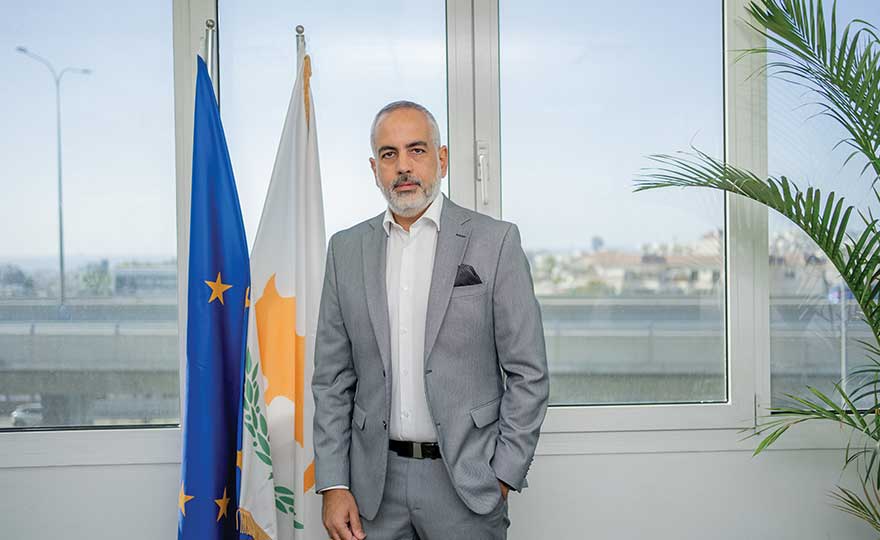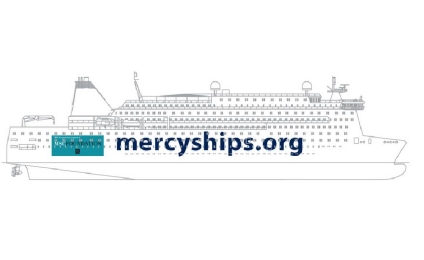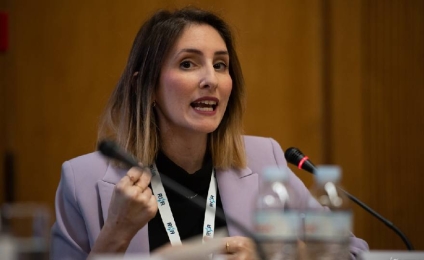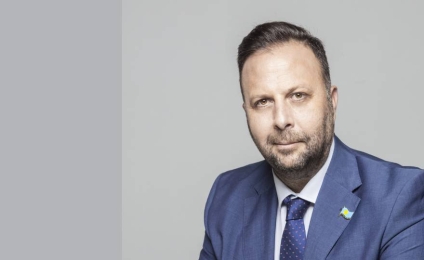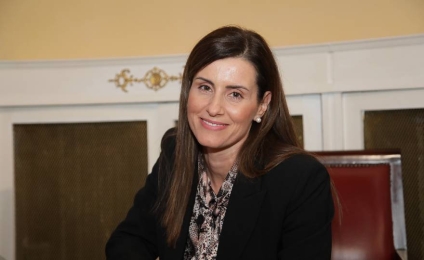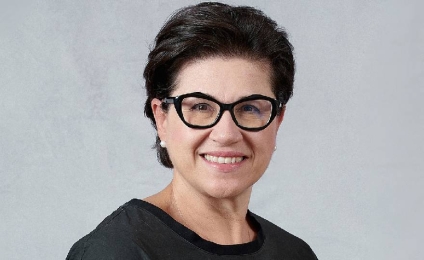The “Maritime Cyprus” Conference is organised every two years by the Shipping Deputy Ministry in cooperation with the Cyprus Shipping Chamber and the Cyprus Union of Shipowners. It was first established in 1989 and since then, has grown into one of the world’s most significant and most attended shipping conferences.
Its status now gives it a prominent position in the calendar of many shipping executives, including owners and managers as well as those in charge of organisations with shipping related activities. The “Maritime Cyprus” Conference attracts to Cyprus approximately 800 shipping executives from around the globe.
Distinguished guests and world class experts analyze and discuss specialised issues of concern to the shipping industry.
The main aim of the conference is to operate as a forum where important and current issues relating to international shipping are presented by distinguished speakers and subsequently discussed by the international shipping community, thereby helping to formulate sound and well balanced decisions and policies on crucial shipping issues. “Maritime Cyprus” Conference also offers the opportunity to the participants to become familiar with the strong maritime tradition of Cyprus, its people and its environment. Its complete shipping infrastructure constitutes an invaluable asset, both for the expanded Europe and for the international shipping community in general.
The next “Maritime Cyprus” Conference is scheduled to take place in Limassol between 9 and 12 October 2022 with physical presence. The Maritime Cyprus Conference is an established biennial event organised by the Shipping Deputy Ministry in cooperation with the Cyprus Shipping Chamber and the Cyprus Union of Shipowners and has grown into one of the world’s most significant shipping conferences since it was first organized back in 1989.
The Conference brings together more than 1000 participants, including shipowners, shipping executives, regulators and state officials from all over the world, including high-calibre speakers. Maritime Cyprus provides the opportunity to the participants to become familiar with the strong maritime tradition of Cyprus and the buzzing maritime cluster in cosmopolitan Limassol. Our endeavour is for Cyprus to maintain and enhance its role as an advanced, proactive, competitive maritime nation with a positive contribution both in Europe and internationally.
Here follows an interesting interview with Mr. Vassilios Demetriades, Shipping Deputy Minister to the President, Republic of Cyprus...
What benefits did you get from your trip to the Land of the Rising Sun and in what ways do you expect the relations between the two countries to be strengthened as well as ways of further cooperation?
Japan is one of the world’s leading maritime nations with a longstanding history and tradition. With its strong and dynamic role in shipping, and reputation for environmental leadership, the Japanese market is an important ally and partner for any maritime nation.
Cyprus has a competitive and sovereign international open Registry and the Cyprus flag enjoys international recognition as a flag of quality and reliability. As a member of the European Union, Cyprus is well placed to serve as a bridge between Japanese customers and investors and the European markets, and constitutes an ideal place for doing business. There is a strong potential to further explore our maritime relations with Japan and towards this direction we will soon open a maritime office in Tokyo.
What is your arsenal of incentives today, what is your national strategy and vision for a clear orientation towards the green and digital transition and how will Cypriot shipping take a leading role in international shipping events?
To support shipowners and create valuable policies, Cyprus is taking a proactive approach to helping the shipping industry navigate decarbonization by creating new policies and initiatives that incentivize shipowners and operators. For example, in the framework of its national long-term strategy for shipping, “SEAchange 2030”, there is a range of green incentives to reward vessels that demonstrate effective emissions reductions beyond the agreed global levels. In addition, annual tonnage tax is reduced by up to 30% for each vessel that demonstrates proactive measures to reduce its environmental footprint. We are also encouraging and facilitating shipowners flying the Cyprus flag to take proactive action by conducting trials using alternative fuels such as Biofuels and Hydrogen and we are working closely with the Research and Innovation Foundation to provide funding tools and programs encouraging research and innovation for cleaner shipping through the establishment of a “Research Innovation Shipping Environment” (RISE).
The Shipping Deputy Ministry strongly supports synergies with the shipping industry, universities and research institutions to seek solutions for the green transformation of the sector. Examples such as the Cyprus Marine and Maritime Institute (CMMI) promote technological innovation bringing together the academic world with the public and private sector to jointly develop innovative systems providing solutions to effectively response to the green and digital transformation of the sector.
Cyprus SDM continues to be actively involved in addressing and shaping industry issues, challenges and regulation on an international level. This is particularly evident with our ongoing engagement with international shipping organizations and committees, tripartite and bilateral meetings with a large number of shipping nations. We are at the forefront of supporting progress in this rapidly evolving industry.
How does the Cypriot government and the Ministry of Shipping help young people to discover their passions and encourage them to utilize their skills and knowledge in order to have a successful career in the maritime sector?
For many years we have remained committed to incentivizing the choice of “blue careers”. Through continuous supervision of the marine academies and maritime training providers in Cyprus and Greece, cooperation with academies to improve and expand their offering, granting scholarships to marine academy students, and subsidies to marine cadets for on-board training, we are doing all we can to bring the next generation into the shipping industry and its related sectors. We’re even making regular visits to schools all over Cyprus to ensure that even the youngest children understand the exciting opportunities available to them. We have launched an interactive online campaign “SEA…your Horizon” addressed to the secondary school children and during the last two years we have organized with great success the “THALASSA”, a two-day event where all organizations associated with shipping and blue economy present their activities to the civil society in order to promote a shipping and maritime culture among the young generation. We fully recognize that commitment to the next generation is central to nurturing the leaders of tomorrow.
At “Maritime Cyprus 2022” Conference, Cyprus will host a session specifically addressed to young shipping executives of the industry. This forum will create a platform for young people to discuss their vision of the industry, prospects and challenges that stimulate and affect them.
A short time ago, the 20th anniversary of the creation of the European Maritime Safety Agency (EMSA) was celebrated. It is known that Cyprus has an important contribution to this structure as there are Cypriot members on the Board of the Organization with influence and important executives of the Organization come from the bowels of the Cypriot Shipping. Participating in a round table discussion during the celebration, you discussed, among other things, the future of global and European shipping. Would you like to tell us a few things about it?
The European Maritime Safety Agency is one of the European Union’s (EU) agencies, founded in 2002. Based in Lisbon, the Agency’s mission is to ensure a high level of maritime safety, maritime security, prevention of and response to pollution from ships, as well as response to marine pollution. The overall purpose is to promote a safe, clean and economically viable maritime sector in the EU.
Cyprus has worked closely with EMSA since it was founded, as well as working with the EU and IMO on regional and global issues. Working with regional and international organizations is essential as it is constructive, collaborative, and means the parties are ready to contribute to the sustainable future of the sector.
We need to lead by example, but also be ready to listen, identify the needs of other regions, and provide assistance where needed. EMSA plays a key role in transforming shipping and in promoting higher maritime safety standards by utilizing its richness of expertise, through training and capacity building, beyond the EU boundaries. We are pleased to be part of this journey.
In what ways did you support your shipping during the two major crises (pandemic and Ukrainian)?
Following the rise of the COVID-19 pandemic, Cyprus was one of the first countries worldwide that recognized seafarers as key workers. Cyprus implemented a formal crew change process, assisting with the repatriation of thousands of seafarers. The SDM also formulated and proposed a practical, global approach to delivering COVID-19 vaccinations to seafarers, which was then adopted by the International Labour Organization (ILO). Further recognizing the urgency of seafarer vaccination, and the role this would play in easing the crew change crisis, Cyprus then committed to vaccinating all crew onboard Cyprus-flagged and managed vessels with the adoption of a national vaccination plan to provide protection to over 40,000 seafarers. Cyprus remains at the forefront of finding practical global measures to support seafarers. In response to the conflict between Russia and Ukraine, Cyprus facilitated the opening of bank accounts for both Ukrainian and Russian seafarers to enable them, and their families, to easily access their wages. We also believed that shipowners and crew managers required an effective solution from flag states to a challenge that many were facing.
Sea Passenger Connection Cyprus-Greece. A vision that came true. What are your impressions of this first season of operation of the line and what do you plan to do in the future to strengthen it?
Cyprus is a significant maritime nation with strong European links and is always looking for positive and proactive collaboration opportunities that benefit the shipping community and beyond. This project is mainly about providing alternative connectivity to our citizens. We also believe that reviving the ferry connection will help in promoting maritime tourism and to continue building a stronger relationship with the rest of the Mediterranean. Cyprus welcomes the potential to expand the ferry link to a third neighboring country beyond Greece too. This is already in discussion, and will continue to be explored. At the same time, our aim is to evaluate the feedback received from our citizens in order to further improve the quality of the service provided by the ferry.
On May 18 we celebrated the International Maritime Women’s Day which was established by a recent decision of the International Maritime Organization. Cyprus recognizes that women have both a role and a say in shipping events and today introduces a new term in international shipping terminology #WOMANNING #SHIPPING! Tell us about this terminology and tell us how you think the presence of Women in Shipping should be strengthened?
Cyprus recognises that women have an important role in all shipping matters, and it is essential that the shipping industry needs to be diverse, equitable and inclusive to thrive, particularly when considering the challenges faced by the industry today will take new ideas, dedication and strong partnerships to achieve net zero shipping.
Cyprus has introduced a new term in the international shipping terminology “WOMANNING SHIPPING” which acknowledges the important role of women in shipping highlighting the need for gender equality while promoting shipping and the blue economy as a choice of studies and professional orientation, inviting women to explore the sector’s enormous potential. All sectors within shipping need to welcome and actively encourage diversity and inclusion.
You have stated that “the success story of Cyprus Shipping is due to the good cooperation of the public and private sectors... the recipes when they are tried and successful do not change”! Would you like to elaborate on this statement?
Cyprus believes in collaboration across the entire industry.
Regulators and industry should work together in order to meet effectively the global shipping challenges whilst maintaining the sector’s competitiveness ensuring a safer, greener and more sustainable future for shipping. When it comes to Cyprus government this is clearly demonstrated through the promotion of an extroverted approach in our working practices. In fact, “extrovert’ is one of the three strategic pillars of our strategic vision “SEA change 2030”. It is all about being good listeners, collecting industry intelligence, seeking consultation with individuals and the shipping industry leading to informed decision making whilst ensuring that our legal framework, policies, incentives and national positions are “fit for purpose” and reflect the challenges, the specificities and the realities of the shipping world.
Cyprus takes the lead in strengthening the levels of maritime safety and protection of the marine environment in the Mediterranean through initiatives that will form a harmonized and unified framework for control and inspections of ships with a proposal to draw up a Memorandum of Cooperation. What exactly does this memorandum of cooperation provides?
It is not about a new Memorandum of Cooperation. It is about Cyprus initiative to invite all EU Mediterranean States to join the Med Memorandum of Understanding on Port State Control in order to assist in raising the maritime safety standards, harmonize further the carrying out of port State control inspections between the EU and non-EU members and thereby improve maritime safety and environmental protection in the Mediterranean Sea basin. It is worth noting that the Mediterranean Sea is a semi-enclosed sea and we should strengthen port state control, being the first line of defense, in order to limit the use of the Mediterranean by ships that are dangerous to human life or the environment. Our initiative which aims to bring together all Mediterranean states is warmly welcomed by the European Commission and EMSA and I hope that all EU Med states (notably Spain, France, Italy, Greece, Croatia and Slovenia) will respond positively to our initiative to join the Med MoU, together with Cyprus and Malta and the other 8 non-EU Med states, in order to further enhance maritime safety and environmental protection in the Mediterranean Sea.
Four Years Deputy Ministry of Shipping! With firm-targeted steps of development of the sector aimed at serving the purpose...”Stronger Shipping - Stronger Cyprus!” What are the milestones, achievements, actions and targets?
Since its inception in 2018, the Cyprus flag has seen significant growth and it is testament to the hard work of the entire team which has made progressive and sustainable changes in its operations and policies to benefit the entire shipping community.
Over the last few years in particular, Cyprus has focused on incentivizing sustainable shipping with new programs and initiatives designed to benefit the environment and shipowners. The tonnage tax system was renewed in 2019, following the approval by the EU, and is prolonged until 2029, increasing Cyprus shipping credibility, ensuring stability to the shipping community. It has been a popular benefit to the shipping community. Demonstrating this value is clear, as the number of shipping companies registered under this regime has increased by 63%, to 282, since 2018. Cyprus continues to develop new and progressive programs to support the maritime sector.
The Shipping Deputy Ministry has worked hard to cement our reputation as a well-established and quality registry, committed to safety, security and excellence. Testament to this is the flag’s commitment to reducing GHG emissions. For example, annual tonnage tax is now reduced by up to 30% for each vessel that demonstrates proactive measures to reduce its environmental impact, ensuring shipowners are rewarded for sustainable shipping efforts. We are building a pathway to achieve and exceed the IMO 2030 and 2050 targets, and we hope our initiatives form a strong foundation from which others can build.
We have made significant progress since our inception but remain focused on looking ahead. We want to progress the Cyprus flag while at the same time supporting development of the European maritime industry by advancing new green technologies, creating opportunities for jobs and growth, and providing a first-mover advantage to the EU shipping industry. We have ambitious plans outlined in our latest strategy, “SEAChange2030”, and look forward to continuing and building upon the progress that has been achieved over the last four years.
We have also made considerable progress in setting the conditions to establish “one-stop-shipping-shop” framework to meet the requests of the shipping industry. Towards this direction, we are working on a dedicated project funded by European Union Recovery and Resilience Facility Program to digitalize all services provided by the Cyprus Maritime Administration creating a paperless environment and the framework conditions necessary to support the integration of all our business units which will further increase our efficiency and quality of service. The transformation is underway and is expected to be fully implemented by early 2024 and we look forward seeing the progress we can make in the short term.
Another important milestone that will add value to the “one-stop-shipping-shop” concept is the formulation of a regulatory and administrative framework for the incorporation of Shipping Company where shipping entities will have the opportunity not only to be taxed but also to register under the umbrella of the Shipping Deputy Ministry. It is a pleasure to be part of this progressive and proactive flag. Together we will continue our journey towards a more sustainable, adaptable and extrovert future for Cyprus and the wider shipping community in Europe and beyond.
The Shipping Deputy Ministry is also responsible for the coordination of the integrated maritime policy of Cyprus. In our effort to maximize the growth potential of our seas in a sustainable way we are formulating Cyprus’ Maritime Spatial Plan – a key cross-cutting tool of our National Integrated Maritime Policy promoting a holistic approach of the Blue Economy Sectors.
The Maritime Spatial Plan (MSP) is the process by which a country analyses and organizes human activities in its marine areas to achieve ecological, economic and social objectives. It is a valuable instrument for sustainable development of marine areas and coastal regions and contributes to the objectives of an ecosystem-based management approach. MSP covers the whole sea area of Cyprus (territorial sea and Exclusive Economic Zone). It is anticipated that Cyprus’s maritime spatial plan will be ready towards the end of this year. We look forward to sharing our achievements in the years to come.
*Shipping Deputy Minister to the President, Republic of Cyprus


